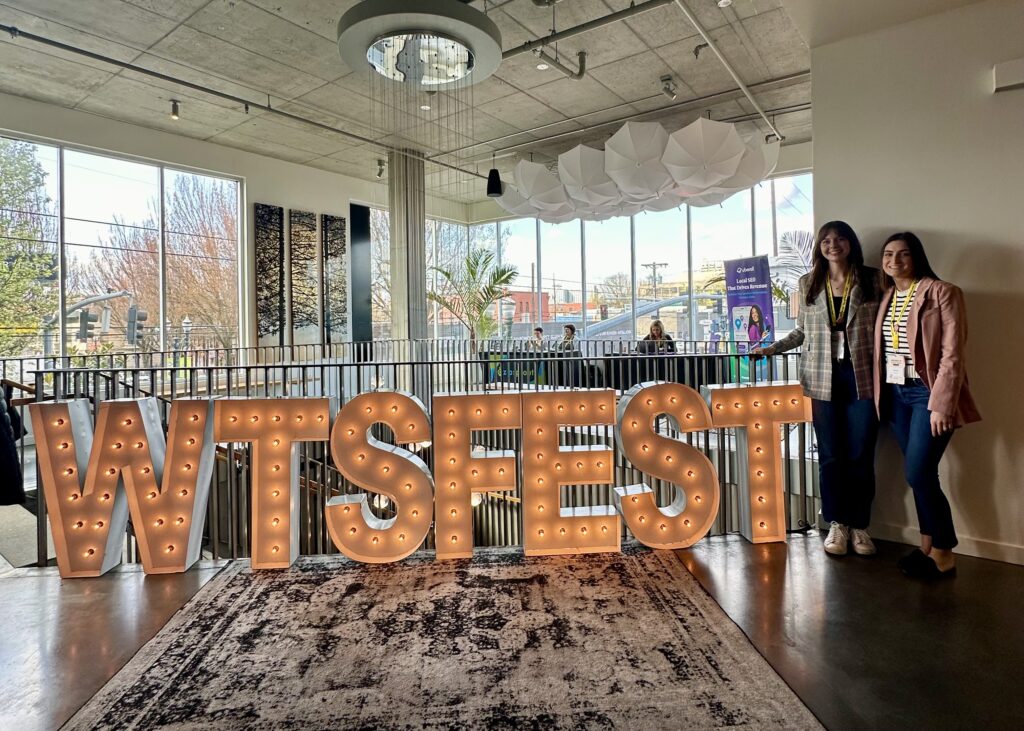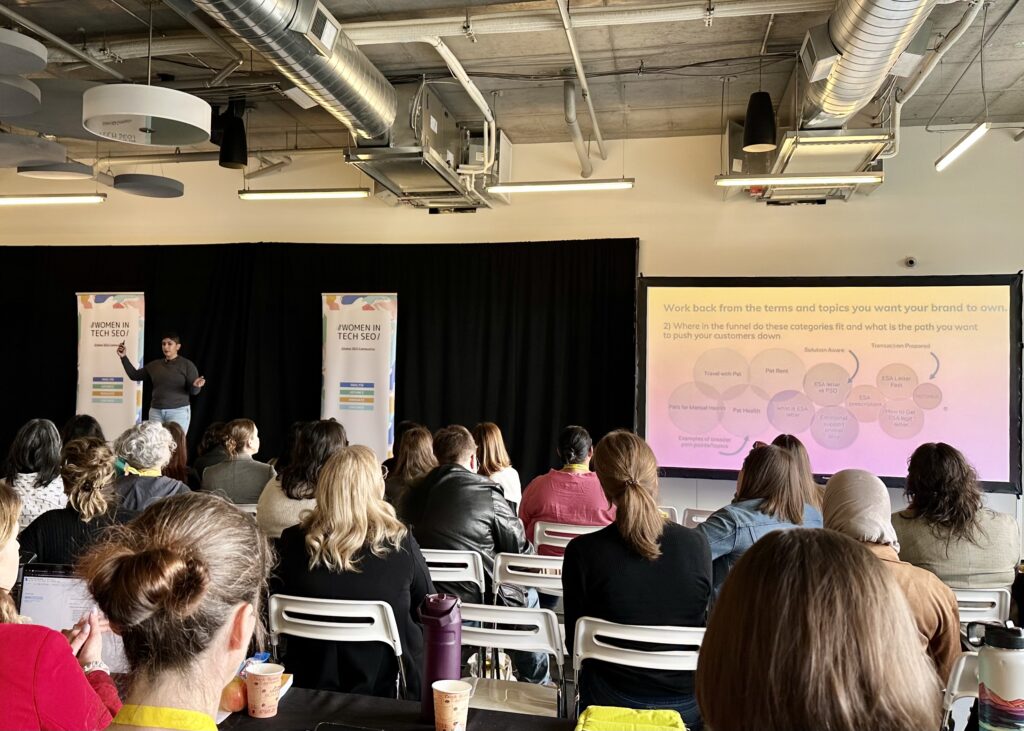Table of Contents

WTSFest Portland served up a refreshing mix of inspiration and tactical depth. From future-proofing your brand in the age of AI to bridging the gap between PR and performance, the conference sparked ideas we’re excited to apply to our work. Here are five key takeaways Abby Miller and I brought home and how they can elevate your SEO efforts.
1. Build a Business Case for Content: Projections Matter
Speakers: Caroline Gilbert, Rachel Heseltine
Execution without alignment is a recipe for SEO projects getting deprioritized. Gilbert and Heseltine emphasized that long-term SEO success starts with speaking the language of executives: business impact. That means tying SEO goals to KPIs leadership already cares about, like revenue, market share, or conversion efficiency.
For Ecommerce brands, we must clearly outline the opportunity (e.g., a keyword gap or product category trend) while projecting realistic traffic estimates based on your site's history, not merely search volume.
The key is to use multiple projection scenarios (both conservative and aggressive) and be transparent about resourcing needs. Setting expectations upfront—and then proactively updating them with actual performance data—strengthens executive trust. This performance-driven feedback loop not only earns trust but also sharpens your strategy.
Check out Caroline's deck and Rachel's deck!
2. Map Content to the Modern Buyer Journey
Speaker: Nadya Khoja
Today’s customer journey is rarely linear. Khoja encouraged us to rethink how we categorize SEO within the broader marketing funnel. Instead of being primarily a top-of-funnel channel, search increasingly acts as a validation point: after a customer sees your product on social or in an ad, they turn to Google to confirm, compare, and explore.
For Ecommerce teams, this means aligning owned, paid, and earned content to all four stages of the modern funnel:
- Consume: Social media, email, and influencer content builds awareness.
- Search: Optimize category and product pages for intent-based queries.
- Compare: Reviews, user-generated content (UGC), and versus pages offer credibility and is what users are looking for more and more.
- Convert: Your website must have strong UX, persuasive CTAs, and clear purchase paths.
Audit your content for gaps. For instance, are you only investing in "Search" while neglecting "Compare"? Closing those gaps can significantly improve your conversion rates.
Check out Nadya's deck!

3. Use PR to Fuel SEO Authority and Discovery
Speaker: Delaney MacKenzie
PR and SEO often run on parallel tracks, but MacKenzie made a compelling case for uniting them. For Ecommerce, where new product launches or brand stories are frequent, this synergy is gold. Start by integrating SEO strategy into PR planning. Use keyword data to inform messaging, and ensure press releases include links to optimized landing pages.
Just as importantly, track the SEO value of PR efforts. Did a placement earn backlinks? Did it boost a keyword cluster’s visibility or drive referral traffic to a high-converting page? When SEO is baked into PR execution and reporting, the result is a stronger, more discoverable brand presence that pays off long after the campaign ends.
Check out Delaney's deck!
4. Invest in Entity Building to Future-Proof Your Brand in Search
Speaker: Erin Rooney Doland
With Google leaning further into entity-based understanding—especially through AI-driven results—Ecommerce brands need to think beyond keywords. Rooney Doland explored how Google's entity-centric algorithms reward brands that clearly define who they are, what they sell, and how they connect to broader topics.
What does this mean in practice?
- Ensure consistency in how you refer to your products, brand, and categories across your site.
- Use structured data to reinforce key information.
- Align language with high-authority sites in your space.
- Be intentional about how you present your brand across owned and earned channels.
This helps solidify your brand as a known entity, improving visibility in both traditional search and emerging AI-powered results.
Check out Erin's deck (featuring her incredible illustrations)!
5. Embrace Growth Over Perfection in Your SEO Journey
Speaker: Debbie Chew
The human side of SEO work often gets overlooked, but Chew's talk was a reminder that confidence is critical to performance. In a field where results take time and outcomes are sometimes ambiguous, imposter syndrome can creep in.
Debbie encouraged professionals to challenge negative thought patterns, seek support from community, and normalize the fact that not knowing everything is okay.
These actionable takeaways from WTSFest Portland 2025 offer invaluable insights for SEO professionals looking to stay ahead of the curve. From building a solid business case for SEO to embracing the evolving role of AI in search, these strategies will help elevate your approach, drive meaningful results, and future-proof your brand’s digital presence.
Check out Debbie's deck!
See You Next Year!
Thank you to Women In Tech SEO for an incredible conference, and to Uproer for sending us. We can't wait to incorporate our learnings into our client work and to continue our conversations with the new friends we made in Portland.

